Search
Search Results
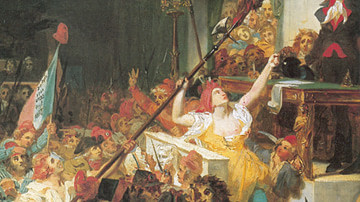
Definition
Thermidorian Reaction
The Thermidorian Reaction refers to the period of the French Revolution (1789-1799) between the fall of Maximilien Robespierre on 27-28 July 1794 and the establishment of the French Directory on 2 November 1795. The Thermidorians abandoned...
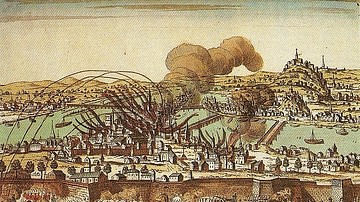
Definition
Revolt of Lyon
The Revolt of Lyon against the rule of the National Convention was a counter-revolutionary rebellion that played a role in both the Federalist Revolts and the Reign of Terror during the period of the French Revolution (1789-1799). Beginning...
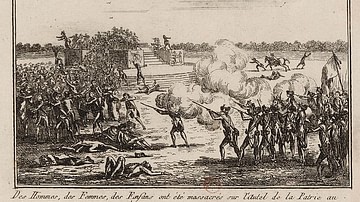
Definition
Champ de Mars Massacre
The Champ de Mars Massacre was an incident that took place on 17 July 1791, when soldiers of the National Guard under the Marquis de Lafayette opened fire on a crowd of demonstrators, who were calling for a referendum on the king's abdication...
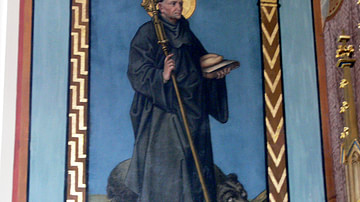
Definition
Saint Gall
Saint Gall (c. 550 - c. 645 CE), also known as Saint Gallus, was an Irish monk who lived in what is present-day Switzerland during the 6th century CE and was one of twelve companions of Saint Columbanus' Christian mission to the European...

Definition
Saint Columbanus
Saint Columbanus or “Columbán” (543-615 CE) was one of the greatest missionaries of the early Catholic Church who led the “Hiberno-Scottish mission” of conversion across much of what is now Western Europe in the late 6th and early 7th century...
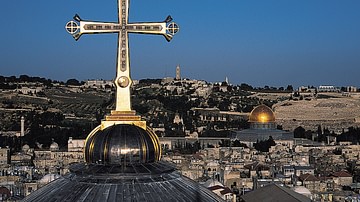
Article
Early Christianity
Emerging from a small sect of Judaism in the 1st century CE, early Christianity absorbed many of the shared religious, cultural, and intellectual traditions of the Greco-Roman world. In traditional histories of Western culture, the emergence...

Article
Pliny the Younger on Christianity
Pliny the Younger's (61-112 CE) letter (Epistulae X.96) to Roman Emperor Trajan (r. 98-117 CE) is one of our earliest sources on Christianity from an outsider's point of view. It highlights the Christian movement's impact on the old Roman...
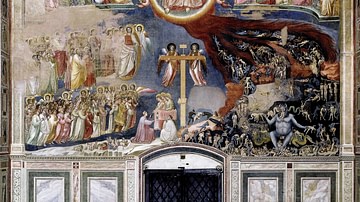
Article
Angels in Christianity
Angels in Christianity act as messengers of God, bring good news, and help believers. Their role developed from the function of angels in ancient Judaism but continued to evolve as Christianity became a separate religion. Jewish & Zoroastrian...
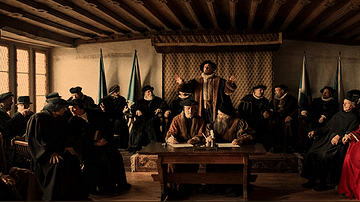
Article
Zwingli's On Rejecting Lent and Protecting Christian Liberty
Although Huldrych Zwingli (l. 1483-1531) began his Reformation efforts in Zürich in 1519, his first break with the Church came in 1522 when he defended a group of citizens who had broken the Lenten fast by eating sausages. The event, known...
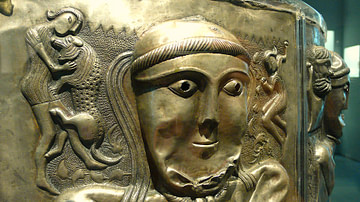
Article
The Ancient Celtic Pantheon
The ancient Celtic pantheon consisted of over 400 gods and goddesses who represented everything from rivers to warfare. With perhaps the exception of Lugh, the Celtic gods were not universally worshipped across Iron Age Europe but were very...